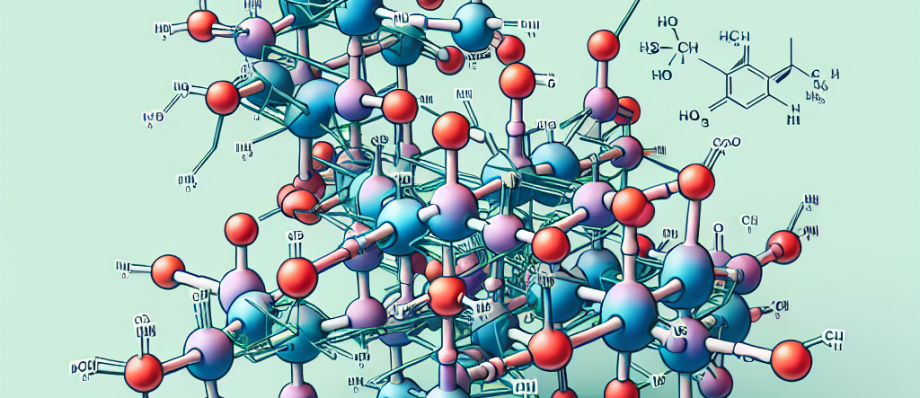What is Delta THC
Introduction
Delta-9-tetrahydrocannabinol (Delta-9-THC) is the primary psychoactive compound found in cannabis. It is responsible for the euphoric and mind-altering effects commonly associated with marijuana use. Delta-9-THC interacts with specific receptors in the brain, leading to various physiological and psychological effects.
The Basics of Delta THC: Understanding its Effects and Composition
Delta THC, also known as delta-9-tetrahydrocannabinol, is a compound found in the cannabis plant that is responsible for its psychoactive effects. It is one of the most well-known cannabinoids and has gained significant attention in recent years due to its potential therapeutic benefits. In this article, we will explore the basics of Delta THC, including its effects and composition.
To understand the effects of Delta THC, it is important to first understand how it interacts with the body. When consumed, Delta THC binds to cannabinoid receptors in the brain and central nervous system, specifically the CB1 receptors. This interaction leads to a range of effects, including euphoria, relaxation, and altered perception of time and space. These effects are what make Delta THC popular among recreational users.
However, Delta THC is not just about getting high. It also has potential therapeutic benefits. Research has shown that it may help with pain relief, nausea and vomiting, and appetite stimulation. It has also been studied for its potential anti-inflammatory and neuroprotective properties. These findings have led to the development of pharmaceutical drugs containing Delta THC, such as Marinol and Cesamet, which are used to treat conditions like chemotherapy-induced nausea and AIDS-related wasting syndrome.
In terms of composition, Delta THC is just one of many cannabinoids found in the cannabis plant. It is typically present in higher concentrations in marijuana compared to hemp. Marijuana is a cannabis plant that contains more than 0.3% Delta THC, while hemp contains less than 0.3% Delta THC. This distinction is important because it determines the legal status of the plant and its products.
Delta THC can be consumed in various forms, including smoking, vaping, and ingesting edibles. Each method of consumption has its own onset time and duration of effects. Smoking and vaping provide almost immediate effects, while edibles take longer to kick in but can last for several hours. It is important to note that the effects of Delta THC can vary from person to person, depending on factors such as tolerance, metabolism, and dosage.
When it comes to safety, Delta THC is generally well-tolerated by most individuals. However, it can cause side effects such as dry mouth, red eyes, increased heart rate, and impaired coordination. These effects are usually mild and temporary, but they can be more pronounced in individuals who are new to cannabis or who consume high doses. It is also worth mentioning that Delta THC can have psychoactive effects, which may not be desirable for everyone.
In conclusion, Delta THC is a compound found in the cannabis plant that is responsible for its psychoactive effects. It interacts with cannabinoid receptors in the brain and central nervous system, leading to a range of effects such as euphoria and relaxation. It also has potential therapeutic benefits and is used in pharmaceutical drugs for conditions like nausea and wasting syndrome. Delta THC can be consumed in various forms and is generally well-tolerated, but it can cause side effects and has psychoactive properties. As always, it is important to use Delta THC responsibly and in accordance with local laws and regulations.
Exploring the Potential Medical Benefits of Delta THC

Delta THC, also known as delta-9-tetrahydrocannabinol, is a compound found in cannabis that has been gaining attention for its potential medical benefits. While most people are familiar with THC as the psychoactive component of marijuana, Delta THC is a slightly different form that may offer unique therapeutic properties. In this article, we will explore the potential medical benefits of Delta THC and how it differs from traditional THC.
One of the most promising areas of research for Delta THC is its potential as an anti-inflammatory agent. Inflammation is a natural response by the body to injury or infection, but chronic inflammation can lead to a variety of health problems, including autoimmune diseases and chronic pain. Preliminary studies have shown that Delta THC may help reduce inflammation by interacting with the body’s endocannabinoid system, which plays a role in regulating immune responses. This could make Delta THC a valuable tool in the treatment of conditions such as rheumatoid arthritis and Crohn’s disease.
Another area where Delta THC shows promise is in the treatment of anxiety and depression. Mental health disorders affect millions of people worldwide, and traditional treatments often come with unwanted side effects. Delta THC, on the other hand, may offer a more natural alternative. Research suggests that Delta THC can activate certain receptors in the brain that are involved in mood regulation, potentially providing relief for those suffering from anxiety and depression. However, more studies are needed to fully understand the effects of Delta THC on mental health.
In addition to its potential as an anti-inflammatory and mood-regulating agent, Delta THC may also have neuroprotective properties. Neurodegenerative diseases, such as Alzheimer’s and Parkinson’s, are characterized by the progressive loss of brain cells. Studies have shown that Delta THC can protect brain cells from damage and promote their survival, suggesting that it could be used as a therapeutic agent for these conditions. However, further research is needed to determine the optimal dosage and long-term effects of Delta THC on neurodegenerative diseases.
It is important to note that while Delta THC shows promise in these areas, more research is needed to fully understand its potential medical benefits. The legal status of cannabis and its derivatives also varies from country to country, making it difficult for researchers to conduct large-scale clinical trials. However, as attitudes towards cannabis continue to evolve, it is likely that more research will be conducted in the future.
In conclusion, Delta THC is a compound found in cannabis that has the potential to offer a range of medical benefits. From its anti-inflammatory properties to its potential as a treatment for anxiety and depression, Delta THC is an area of research that holds promise. While more studies are needed to fully understand its effects and determine the optimal dosage, the future looks bright for Delta THC as a potential therapeutic agent. As research continues, it is hoped that Delta THC will become a valuable tool in the treatment of various medical conditions, improving the lives of countless individuals.
The Legal Status of Delta THC: A Comprehensive Overview
Delta THC, also known as delta-9-tetrahydrocannabinol, is a compound found in cannabis that has gained significant attention in recent years. As the cannabis industry continues to evolve, it is crucial to understand the legal status of Delta THC and how it differs from its more well-known counterpart, delta-9 THC.
In many countries, including the United States, cannabis remains illegal at the federal level. However, there are some exceptions to this rule. The 2018 Farm Bill legalized the cultivation and sale of hemp, defined as cannabis plants containing less than 0.3% delta-9 THC on a dry weight basis. This legislation opened the door for the production of Delta THC from hemp-derived CBD.
Delta THC is a psychoactive compound that can produce similar effects to delta-9 THC, but with some notable differences. While delta-9 THC is known for its potent psychoactive properties, Delta THC is said to be less intense, providing a milder and more manageable experience for users. This distinction has led to the rise in popularity of Delta THC products, such as delta-8 THC.
However, the legal status of Delta THC is a complex and evolving issue. While the 2018 Farm Bill legalized hemp and its derivatives, it did not specifically address the legality of Delta THC. This has created a legal gray area, with some states allowing the sale and consumption of Delta THC products, while others have banned them outright.
In states where Delta THC is legal, it is often subject to strict regulations. For example, some states require that Delta THC products be tested for potency and purity, ensuring that they contain only trace amounts of delta-9 THC. Additionally, these products may be subject to labeling requirements, clearly indicating the presence of Delta THC and its potential effects.
On the other hand, in states where Delta THC is illegal, the sale and possession of these products can result in serious legal consequences. Law enforcement agencies have been cracking down on the sale of Delta THC products, citing concerns about their potential health risks and the lack of regulation in the industry.
The legal status of Delta THC is further complicated by the fact that it can be derived from both hemp and marijuana. While hemp-derived Delta THC falls under the purview of the 2018 Farm Bill, marijuana-derived Delta THC remains illegal at the federal level. This means that even in states where marijuana is legal for recreational or medicinal use, the production and sale of Delta THC derived from marijuana may still be prohibited.
As the popularity of Delta THC continues to grow, lawmakers and regulators are grappling with how to address its legal status. Some argue that Delta THC should be treated the same as delta-9 THC, while others believe that it should be subject to its own set of regulations. Ultimately, the legal status of Delta THC will likely vary from state to state, with some embracing its potential benefits and others taking a more cautious approach.
In conclusion, the legal status of Delta THC is a complex and evolving issue. While the 2018 Farm Bill legalized hemp and its derivatives, it did not specifically address the legality of Delta THC. As a result, the sale and possession of Delta THC products can vary from state to state, with some allowing their sale and consumption, while others have banned them outright. As the cannabis industry continues to evolve, it is crucial for consumers and businesses alike to stay informed about the legal status of Delta THC and any changes that may occur in the future.
Q&A
1. What is Delta THC?
Delta THC, also known as delta-9-tetrahydrocannabinol, is the primary psychoactive compound found in cannabis plants. It is responsible for the euphoric and mind-altering effects commonly associated with marijuana use.
2. How does Delta THC affect the body?
When consumed, Delta THC binds to cannabinoid receptors in the brain and central nervous system, leading to various physiological and psychological effects. These can include relaxation, altered perception of time and space, increased appetite, and changes in mood and cognition.
3. Is Delta THC legal?
The legality of Delta THC varies depending on the jurisdiction. In some places, it is legal for medical and/or recreational use, while in others it remains illegal. It is important to check the specific laws and regulations of your location before using or possessing Delta THC products.
Conclusion
Delta THC is a specific form of tetrahydrocannabinol (THC) that has a slightly different chemical structure compared to the more common delta-9 THC. It is known for its psychoactive effects and is found in cannabis plants. Delta THC has gained attention in recent years due to its potential therapeutic benefits and its legal status in some regions. Further research is needed to fully understand its effects and potential uses.
![]()



